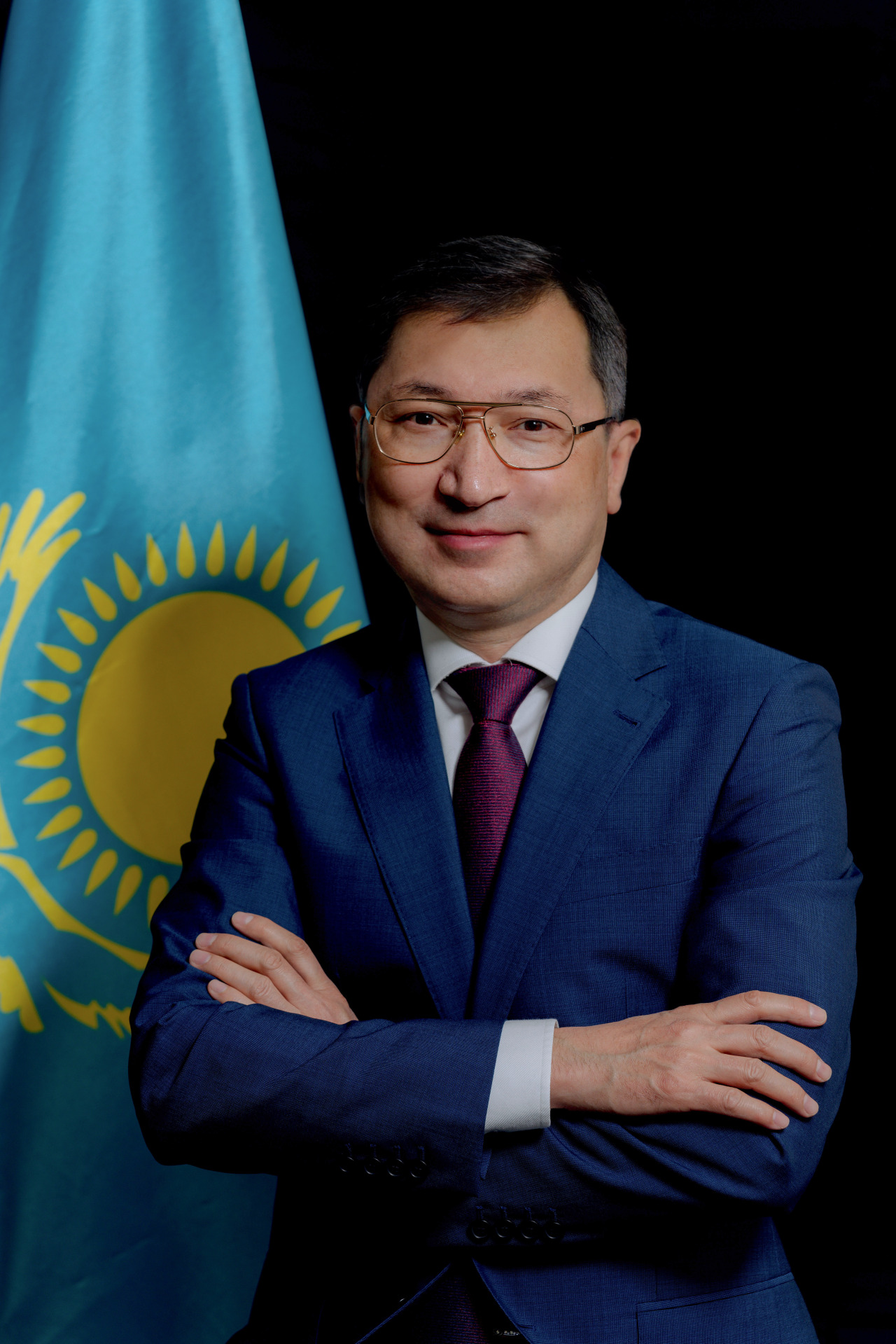Kazakhstan is ready to provide “maximum support” for large investment projects, tax exemptions, issuance of in-kind grants and solutions to infrastructure problems, Kazakhstan’s ambassador to Korea said in an interview with The Korea Herald Sunday.
A special working group aimed at expanding investment cooperation with Korean businesses and implementing joint projects, chaired by Kazakhstan’s First Deputy Prime Minister Roman Sklyar, has been set up, Bakyt Dyussenbayev said via email.
“One of the main achievements of this working group was the launch of an international project of a ferroalloy plant in the Pavlodar region with $500 million,” Dyussenbayev said.
The joint venture with Korean steel manufacturing firm SAC will create more than 1,000 jobs, he added.
Special economic and industrial zones have also been set up, along with strategic investment contracts and support tools, to facilitate the implementation of investment projects, he said.
Kazakh Invest, a government-run company that helps attract overseas investments and supports international companies looking to expand in the country, has helped bolster Kazakhstan-Korean cooperation in the Central Asian country, Dyussenbayev said.
Some 500 local companies operate with Korean capital in Kazakhstan, according to Dyussenbayev. Korean companies in the country include Samsung Electronics, Shinhan, Lotte, SK, KNOC, Posco and a Hyundai car assembly plant in Almaty, Kazakhstan’s largest city, he said.
In August last year, diplomatic relations between the two were raised to the level of expanded strategic partnership during Kazakhstan President Kassym-Jomart Tokayev’s visit to Korea.
Just prior to the state visit, the remains of Hong Beom-do, a historic Korean independence fighter, returned to Seoul 78 years after his death in Kazakhstan. Hong led Korea’s fight against Japanese forces in the early 1900s.
According to Dyussenbayev, Kazakhstan is the largest trade and economic partner of Korea in the Central Asian region and trade turnover between the two countries amounted to $3.2 billion in 2021.
Dyussenbayev stated that Korea’s accumulated investment in Kazakhstan’s economy has reached $6.7 billion, and $800 million was from last year alone.
With the investments, “several important projects are currently being implemented,” he said, adding that Kazakhstan will be a reliable supplier of critical rare earth elements for the electronics industry due to its rich mineral resource base.
Citing President Tokayev’s proposal to strengthen cooperation in producing computer equipment, network equipment, data processing centers during his state visit to Korea, the ambassador said Kazakhstan was working to roll out 5G network and invited Korean companies to take part implementing 5G projects in Kazakhstan.
“Experience of the Korean side is of great interest to us,” he said.
Furthermore, Kazakhstan also plans to increase the share of alternative energy to 30 percent by 2030, of which 15 percent will be produced using renewable energy sources, he added.
Dyussenbayev also sought to appeal to Korean engineering, procurement and construction companies to look to Kazakhstan, saying it has emerged as an important player and attractive investment destination.
The largest international trade corridors pass through Kazakhstan due to consistent efforts on infrastructure development and active involvement in China’s Belt and Road Initiative, he said.
“Kazakhstan’s location enables it to connect European, Asian and Middle Eastern markets, where 65% of the world’s GDP is generated,” said Dyussenbayev stressing that Kazakhstan offers vast opportunities in engineering, construction, agriculture, petro chemistry, metallurgy, tourism and pharmaceuticals.
To facilitate the ease of doing business in Kazakhstan, 13 Special Economic Zones offering tax incentives ensure a favorable investment climate through judicial reforms, digitalization, optimization of public services, permit system and other initiatives, he said. Kazakh Invest also acts as a one-stop-shop for investment partners and the Astana International Financial Centre hub introduced English common law principles to the Central Asian region, he added.
Dyussenbayev hoped that Kazakhstan’s rich resource base, large territory, coupled with Korea’s high technologies and the large Korean diaspora — an important factor in rapprochement, would help launch and develop new projects in the near future strengthening bilateral relations.
Applauding Korea’s journey of democratization in a short time and becoming one of the most developed countries in the world, Dyussenbayev said Kazakhstan gained independence in 1991 confidently following the path of developed democratic countries in building a modern Kazakhstan.
“Further democratization and development of Kazakhstan will open up new and extensive opportunities for expanding bilateral cooperation,” he stressed, noting current interactions between Kazakhstan and Korea is characterized by high dynamics of political and economic cooperation.
Dyussenbayev also said President Tokayev is leading far-reaching political reforms and other initiatives with the aim of transforming and modernizing Kazakhstan.
By Sanjay Kumar (
sanjaykumar@heraldcorp.com)








![[Today’s K-pop] Blackpink’s Jennie, Lisa invited to Coachella as solo acts](http://res.heraldm.com/phpwas/restmb_idxmake.php?idx=644&simg=/content/image/2024/11/21/20241121050099_0.jpg)